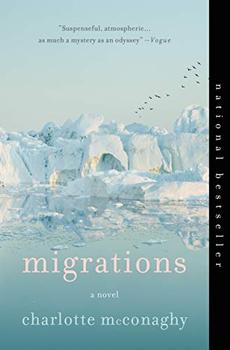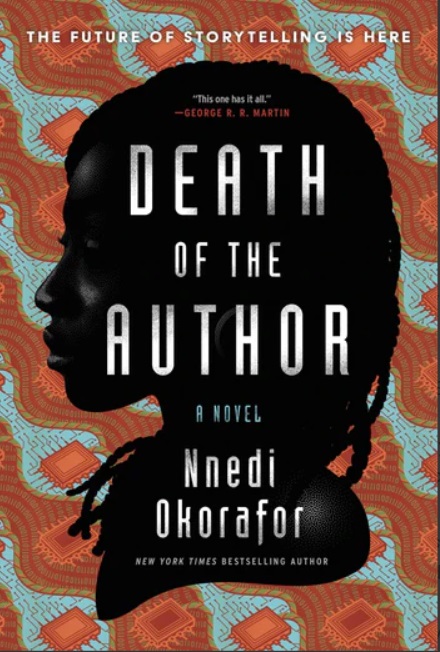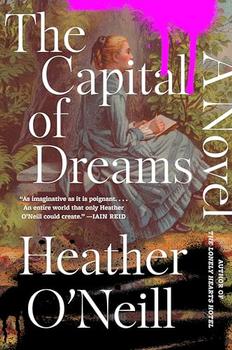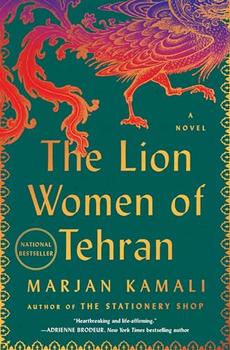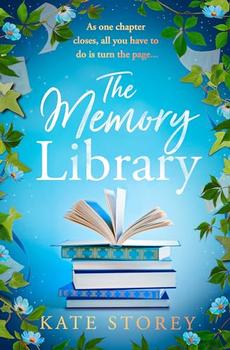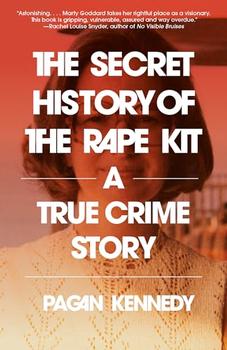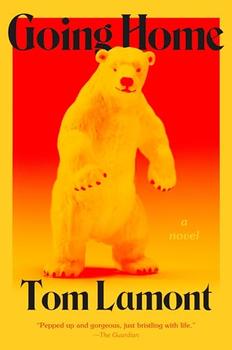Write your own review!
SH
Eerie story
I found this book drew me in. It has a beautiful theme of protecting the wild. And the connection to Franny's "wildness" is well written. I had difficulty relating to the characters personalities and actions, however. I cannot think of any friends with whom I will share this book. It just seemed so surreal.
Djcminor
Wanderer
I received an advance copy of Migrations by Charlotte McConaghy, and I am delighted to have been chosen to be among the first readers. Caroline Bleeke, Senior Editor, Flatiron Books, wrote a note to readers at the beginning of the book. She says, “When Migrations slipped unobtrusively into my inbox, the pitch was so enthralling that I read the first sentence and that was so mesmerizing that I read the first chapter, and, before I knew it, I was convinced that if I didn’t publish this novel, I would never love another book again.” That’s high praise from someone who obviously reads a great many books. Bleeke goes on to record that “the experience of first reading Migrations was galvanizing.”
Occasionally, if I read such high praise for a book or a movie, I am immediately skeptical and wonder if the hype is deserved. In the case of Migrations, I would agree with Bleeke. The first two lines of Migrations follow here: “The animals are dying. Soon we will be alone here.” Since we are in the midst of the COVID-19 virus pandemic, those lines are wounding. The news constantly reminds us of how many people have died from the virus as well as the climbing numbers of those catching the virus. Instead of people’s deaths, we see animals dying; however, if animals die, how much time is left for humans as well?
Set in the future, Migrations takes readers along with wanderer Franny Stone as she tracks the migration of terns in the Arctic Circle. Her goal is to be allowed on board the Saghani, a fishing vessel, so that she can follow the terns she has banded. Franny must prove herself worthy to be aboard the ship and must work just as the other members of the crew do to pull her weight.
Franny shares a tiny room with the only other female onboard the ship, Lea, who is none too happy to share her quarters with Franny. Other crew members include Basil, Malachai, Daeshim, Anik, and the Skipper Ennis. Anik teaches Franny how to tie all the knots necessary for working on the ship and the reason for each one. Her fingers bleed from the constant tying of the harsh ropes, but she stays at her task as Anik quizzes her on each knot’s use.
To understand a bit about Franny and her quest, readers need some backstory. Born to Irish folk who had migrated to Australia, Franny and her mother, the husband and father long gone, reverse the migration and return to Ireland, years after their first ancestors landed in Australia. When Franny was ten, she decided to run away with a boy she met by the sea. She went with him and his family to the West Coast of Ireland, some distance from her home.
Franny realizes she needs to return home, and she starts walking, but the backpack she carries is full of books. She begins leaving them along the way to lighten her load. A kindly woman pays for a bus ticket and Franny returns to her home, but her mother is gone, vanished. Her mother has told Franny often enough that if Franny abandons her the way everyone else in her life has done, that will be the end. And now, Franny is both motherless and fatherless. Social services discover her grandmother in Australia and send her to the grandmother.
Franny is full of secrets which haunt her even as she works so hard on the ship that she falls into a deep sleep most nights. Occasionally, she has night terrors and wakes only to find sleep elusive. She writes letters which obviously go unsent.
In this future when animals are going extinct, Franny Stone searches for meaning and a hope for the future. McConaghy writes with power. This sample from a storm in the North Atlantic highlights the strength of her prose: “The Saghani is barely holding anchor in the gale-force winds and I can see ten-foot waves crashing onto the deck. It will be slippery as hell down there, the simplest thing in the world to be washed overboard.”
After Franny is attacked by a man when the ship is in port, Ennis rescues her. The rawness of the encounter and the danger Franny faces makes readers’ hearts race. After she is safe with Ennis, “we run, an adrenaline-fueled blur, feet slapping on boards and low voices giving urgent commands. I blink and I’m on the boat and the guys are working like madmen to get it moving.” Ennis reassures her, “You’re not alone, love. Be easy. You’re not alone.”
But that’s what Franny fights all the way through the story, being alone in her own head and trying to make connections.
Charlotte McConaghy, living in Sydney, Australia, is a screenwriter who has also published eight books. Migrations is her first book published in the US. Learn more from her Web site.
 Techeditor
Migrations
Techeditor
Migrations
After reading MIGRATIONS, I understand why it has received so many good reviews. But, although it has a promising beginning, the bulk of the book is slow and depressing. It also seemed choppy to me until I got used to it’s going to and from various periods of time.
All is bleak, with nearly every animal species extinct and those not extinct close to being so. This is the world when Franny takes it upon herself to follow Arctic terns as they migrate from the Arctic Circle all the way to the Antarctic.
During her journey, we learn more and more about Franny through many flashbacks. They give the impression that she is a selfish person. But keep reading. As her secrets are divulged, your impression may change. And the secrets also make for a great ending.
As a matter of fact, I think those last few chapters are the reason for all the good reviews and high ratings, although it is true that Charlotte McConaghy’s writing is beautiful throughout the book. Plus, her descriptions of the Arctic and the Antarctic made me cold.
But the story never addressed to my satisfaction how nearly all animal species could be extinct while human beings are just fine. All species depend on other species for their lives, including the human species.
Jane C. (Whiting, NJ)
Not What I Expected
Migrations left me feeling let down and with more questions than answers. I did not connect with Franny, the narrator and thought she was unreliable, as in her remarks to others about her parents. The reason for Franny's wanderlust was never made apparent, even implicitly. She had found love with Niall and even with Ennis Malone. Even Niall's mother, Penny, accepted Franny and was willing to help her. What became of Ennis and his crew? These folks were too integral to the plot to just fade away. Also, the uneven way the backstory was brought in kept bouncing me out of the story--when did this happen, now? And, why bring in the father exactly at the end of the story? What did he have to do with anything except possibly in a minute way by his absence. I enjoyed Niall and Ennis and wished for a better way to have their story told.
